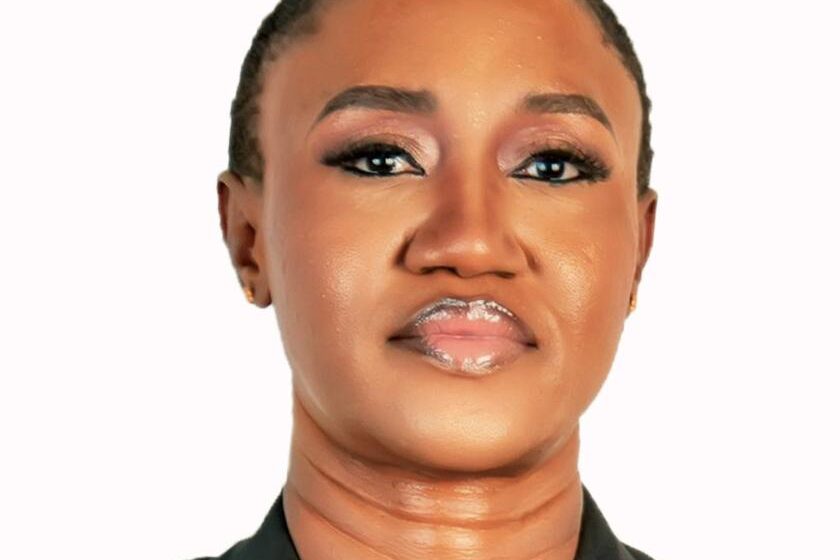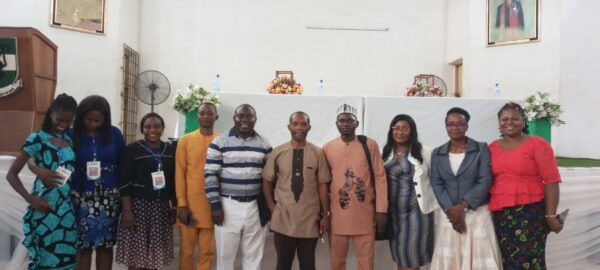CrispNG’s maiden lecture: Women inclusion in Nigeria still low – Aisha Wakaso

Aisha Wakaso
Aisha Wakaso, Special Adviser to the Niger State Governor on Print Media, has expressed concern over the slow pace of women’s inclusion in politics. Speaking at Crisp Nigeria’s maiden annual lecture on Saturday, April 17, 2024, Wakaso stated that women’s progress in politics is akin to a snail’s pace.
Wakaso delivered a lecture titled “Nigeria of Our Dreams: Preparing Women and Girls for Leadership” at the event, which was themed “Nigeria of Our Dreams: Are the Youths Involved?”
The programme was organized to celebrate International Youth Day and featured notable speakers, including former Minister Barr. Dalung, Prof. Luke Anorue, Dr. Ambrose Igboke, Halima Layeni, and Busaosowo Bisong.
Excerpts from the lecture
“Since Independence in 1960, women’s involvement in government has been a snail-like increment. We have been progressing too slowly. We have serious challenges that have held us back.
Post-independence, women were seen as not qualified to be in the political space. It wasn’t until the early or late 20th century that women began to get some involvement in politics and political appointments.
Now, significant strides have been made in appointing women to key governmental positions, especially since 1999 when democracy returned to Nigeria. We started to see women being appointed to political offices and even having the courage to contest elections.
More recently, some women have received appointments, and more are venturing into politics, getting into our national and state assemblies. However, despite these small advancements, the number of women in leadership remains dispassionately low compared to our male counterparts.
SEE VIDEO
Challenges women face in politics
We have been faced with several challenges that hinder the effective participation of women in politics. One of them is culture and societal norms. There’s this belief that a woman’s place should be in the kitchen, grooming and raising children. This not only discourages us as women but also puts a strain on how far we want to go because families always remind us that we are women, implying we shouldn’t aim too high.
 For example, our former president once responded when his wife made a comment on some issues, saying that his wife should not involve herself in governance or anything else because her place is in the “other room.” When a highly placed Nigerian, our own president, says something like that, it shows how cultural and societal norms have impeded our growth as women.
For example, our former president once responded when his wife made a comment on some issues, saying that his wife should not involve herself in governance or anything else because her place is in the “other room.” When a highly placed Nigerian, our own president, says something like that, it shows how cultural and societal norms have impeded our growth as women.
Then we have economic barriers. Women, of course, do not have the economic power that men have; men control the economy. So, they have the economic power, and women do not. This is a barrier for women, and if you look at it, entering politics or even just securing political appointments in Nigeria requires money.
Women going into politics cannot match the men who give money in hundreds and thousands of dollars to win primary elections. Sarah Jubril is a critical example. She contested for the PDP primaries to be President of Nigeria, but not a single vote came from the women delegates. I don’t know if she even voted for herself, but there wasn’t a single vote from women. Looking at how things are now, we keep hearing that people pay hundreds of millions, tens of millions, to get political appointments, which is disheartening. Because we do not have the economic power, it means we might never get those appointments; they will always go to the men.
We also face political violence and intimidation. Women are intimidated—men are too—but men can often withstand intimidation from other men.
However, will a woman be able to stand such intimidation? Not just from one or two men; sometimes we are blackmailed, and sometimes our private lives are brought into the public sphere just because we want political appointments.
As women, we are expected to be modest and responsible, so these tactics make us shy away from politics.
There’s also a lack of support. Even women don’t support women. I’ve already mentioned the case of Sarah Jubril. Now, we’re trying to encourage women, reminding them that they are the ones who most often stand in line to vote men into power.
Recently, Honorable Gudaji mentioned that women are the ones who stand in line to vote; they come out in numbers, and you can trust a woman who gives you her word. But unfortunately, we do not support ourselves. There’s a lack of support from networks, whether from family, fellow women, or even men; they do not give us the opportunity to thrive.
Then there are educational disparities. I know families where their sons go to better schools, while their daughters are sent to any school because the family believes the girl will be married off to another family and will no longer be their responsibility. In their limited view, she becomes the property of her husband’s family, so they don’t invest in her education.
READ ALSO
CrispNG’s maiden lecture: How to solve Nigeria’s trust problem — Solomon Dalung
After CrispNG’s investigation, Niger pays midwives backlog salaries
Boys attend better schools, while some girls don’t even go to university. For those of us from northern Nigeria, our brothers go to university, and we girls stop at a polytechnic or maybe just have our secondary school results.
Family and marriage are also problems for some of us who are women. For those of us from northern Nigeria, there is something they do to us. Maybe in secondary school or 200 level, you start hearing things like, “Bring us a husband.”
When you are told to bring a husband, it registers in the minds of girls that their target after school should just be to find a husband. The moment you bring a husband, that alone takes you another three to four years off being very productive.
The first thing that happens after marriage is you get pregnant and have a child, which takes you three to four years out of being productive. And then, again, when they tell you to bring a husband, no one directs you or tells you that you’re supposed to do more—like join politics or be in governance to take decisions that affect you as a woman. From childhood, we are told that if we don’t know how to cook or do other household tasks, we won’t get a good husband. Instead of letting us know that we could be married and still function well in government and participate in politics.

Solutions
There are practical solutions that we could put in place. There needs to be a lot of advocacy and sensitization. This stereotyping of women needs to be addressed. We need to let people know that not every woman in politics sleeps around. Not every woman who is in governance, who has grown or risen through the ranks, had to compromise her morals to get there. Until we change these stereotypes, the narratives that people carry around will continue to hinder the progress of women in governance and politics.
I use women as examples all the time, and the women I reference are, first, Ngozi Okonjo-Iweala, who was and is still married; it didn’t affect her marriage, and she didn’t have to compromise her morals to get to where she is. It was her capacity and competence that got her there. We have Obiageli Ezekwesili and many other women who are doing well without having to compromise their values.
Economic empowerment programs should be introduced for women to give them the economic power they need. When they do, they can pursue what they want to do, join politics, and rise through the ranks in politics and governance.
Legal frameworks should be strengthened and implemented, and laws enforced to protect women. Right now, women are not adequately protected, and it doesn’t matter who they are.
We’ve seen people at the national level disrespect women at the national level. For example, we saw the viral video where Minister Woke disrespected Senator Kingibe, and another video where the Senate President disrespected Natasha Akpoti. Those videos went viral, and people called for an apology, but the Senate President refused until a faceless blog put out his number, his wife’s number, and named his side chicks. This is someone who disrespects his colleagues in the Senate, who are also potential Senate Presidents. Imagine what he would do to someone like me or what is happening to women at the local level.
Regarding the issue of 35% affirmative action, we should walk the talk. People talk about it, but nothing is being done. In my state, we have just one woman in the House of Assembly, and that’s been the case for the past 10 years. We have just about four or five women who are commissioners out of 30. We have 30 special advisors, and we’re just five women. So, we should walk the talk.
Nobody is really giving us the support we need. We should also build capacity. The few women who have the opportunity should build the capacity of other women.
We should encourage women to be “social media girls” because, unfortunately, what we have now is women who only take pictures and post on Facebook, Instagram, and Twitter. We are not growing; we do not have the capacity to hold political appointments. Some of us do not even have the capacity to represent well if given the opportunity.
Mentorship should be taken seriously. Some women refuse to mentor, and some of our girls are not mentorable. Until our girls begin to be mentorable, have respect, and value the people who have risen and try to learn under their tutelage, governance for women and getting into politics will continue to be difficult.
Educational reforms should ensure that equal access to quality education is given to girls.
Finally, value orientation: women, let’s come together, support ourselves, try to grow, and mentor young girls who could take our positions if we’re no longer there. Thank you very much for this opportunity.




